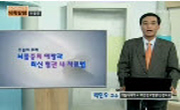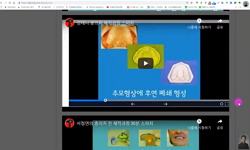지역사회 거주하는 뇌졸중 장애인의 참여를 생산성, 여가, 사회생활 영역으로 살펴보고, 장애수용과 불안이 미치는 영향을 알아보고자 하였다. 자료수집은 2018년 10월부터 2019년 1월까지 복...
http://chineseinput.net/에서 pinyin(병음)방식으로 중국어를 변환할 수 있습니다.
변환된 중국어를 복사하여 사용하시면 됩니다.
- 中文 을 입력하시려면 zhongwen을 입력하시고 space를누르시면됩니다.
- 北京 을 입력하시려면 beijing을 입력하시고 space를 누르시면 됩니다.
부가정보
국문 초록 (Abstract)
지역사회 거주하는 뇌졸중 장애인의 참여를 생산성, 여가, 사회생활 영역으로 살펴보고, 장애수용과 불안이 미치는 영향을 알아보고자 하였다. 자료수집은 2018년 10월부터 2019년 1월까지 복지관, 지역사회 서비스를 이용하는 192명을 대상으로 하였으며 장애수용, 불안과 참여에 대한 자료를 수집하였다. 일반적 특성은 기술통계, 일반적 특성에 따른 참여를 비교하기 위해 t-test와 일원배치분산분석을 실시하였다. 변인 간의 상관관계는 피어슨 상관분석, 그리고 인과관계 규명을 위해 다중회귀분석을 실시하였다. 그 결과, 참여의 생산성에 영향을 미치는 요인은 노동(ß=.28, p<.001), 장애를 독특하게 여기지 않는 것(ß=.14, p<.05), 보상적 행동의 질(ß=.22, p<.01), 주관적 불안(ß=-.35, p<.05)으로 나타났으며, 설명력은 33%(F=9.44, p<.001)를 보였다. 여가는 장애에 대한 자기만족도(ß=.18, p<.05)와 보상적 행동의 질(ß=.18, p<.05)로 나타났으며, 23%(F=6.32, p<.001)의 설명력을 보였다. 사회생활은 노동(ß=.19, p<.01), 주관적 불안(ß=-.51, p<.05)으로 나타났으며, 설명력은 23%(F=6.05, p<.001)를 보였다. 이는 뇌졸중 발병 이후 변화된 삶을 위한 심리사회적인 요인에 대한 중요성을 시사하며, 뇌졸중 장애인의 참여를 개선하기 위한 프로그램의 구성과 적용, 실질적인 접근의 필요성을 제시한다.
다국어 초록 (Multilingual Abstract)
This study examined the participation of the people with stroke living in the community in terms of productivity, leisure, and social domain, and identified the effect on disability acceptance and anxiety. For data collection, from October 2018 to Jan...
This study examined the participation of the people with stroke living in the community in terms of productivity, leisure, and social domain, and identified the effect on disability acceptance and anxiety. For data collection, from October 2018 to January 2019, data on disability acceptance, anxiety, and participation were collected from 192 people with stroke who used welfare centers and community services. For general characteristics, t-test and one-way ANOVA were used to compare participation according to descriptive statistics and general characteristics. Pearson correlation analysis was used for correlation between variables, and multiple regression analysis was used to identify causality. As the result, factors affecting the productivity of participation were labor(ß=.28, p<.001), de-emphasis on disability salience(ß=.14, p<.05), compensatory(ß=.22, p<.01), and subjective anxiety(ß=-.35, p<.05), and the explanatory power was 33%(F=9.44, p<.001). Leisure was expressed as self-satisfaction with disability(ß=.18, p<.05) and the compensatory(ß=.18, p<.05), and had an explanatory power of 23%(F=6.32, p<.001). Social activity was labor(ß=.19, p<.01), and subjective anxiety(ß=-.51, p<.05), which showed 23%(F=6.05, p<.001) of explanatory power. This suggests the importance of psychosocial factors for a changed life after the onset of a stroke, and a practical approach is needed to construct and apply programs to improve participation.
목차 (Table of Contents)
- 요약
- Abstract
- Ⅰ. 서론
- Ⅱ. 연구 방법
- Ⅲ. 연구 결과
- 요약
- Abstract
- Ⅰ. 서론
- Ⅱ. 연구 방법
- Ⅲ. 연구 결과
- Ⅳ. 고찰
- Ⅴ. 결론
- 참고문헌
참고문헌 (Reference)
1 한은경 ; 김상훈 ; 박상학 ; 조용래 ; 김학렬, "한국판 Beck Anxiety Inventory의 요인구조: 정신과 환자를 대상으로 한 확인적 요인분석의 적용" 한국임상심리학회 22 (22): 261-270, 2003
2 K. Daniel, "What are the social consequences of stroke for working-aged adults? A systematic review" 40 (40): e431-e440, 2009
3 M. W. Post, "Validity of the utrecht scale for evaluation of rehabilitation-participation" 34 (34): 478-485, 2012
4 J. H. Lee, "Validity and Reliability of the Korean Version of the Utrecht Scale for Evaluation of Rehabilitation-Participation" 2017 : 1-5, 2017
5 M. Rittman, "Transition experiences of stroke survivors following discharge home" 14 (14): 21-31, 2007
6 I. M. Berges, "The role of positive affect on social participation following stroke" 34 (34): 2119-2123, 2012
7 D. Crowley, "The longitudinal relationship between acceptance and anxiety and depression in people who have had a stroke" 22 (22): 1321-1328, 2018
8 S. Simeone, "The experience of stroke survivors three months after being discharged home : A phenomenological investigation" 14 (14): 162-169, 2015
9 Y. Guo, "The Unmet Needs of Community-Dwelling Stroke Survivors : A Systematic Review of Qualitative Studies" 18 (18): 2140-, 2021
10 A. R. Cho, "The Effects of Self-Focused Attachment on Depression and Acceptance of Disability" Yonsei University 1997
1 한은경 ; 김상훈 ; 박상학 ; 조용래 ; 김학렬, "한국판 Beck Anxiety Inventory의 요인구조: 정신과 환자를 대상으로 한 확인적 요인분석의 적용" 한국임상심리학회 22 (22): 261-270, 2003
2 K. Daniel, "What are the social consequences of stroke for working-aged adults? A systematic review" 40 (40): e431-e440, 2009
3 M. W. Post, "Validity of the utrecht scale for evaluation of rehabilitation-participation" 34 (34): 478-485, 2012
4 J. H. Lee, "Validity and Reliability of the Korean Version of the Utrecht Scale for Evaluation of Rehabilitation-Participation" 2017 : 1-5, 2017
5 M. Rittman, "Transition experiences of stroke survivors following discharge home" 14 (14): 21-31, 2007
6 I. M. Berges, "The role of positive affect on social participation following stroke" 34 (34): 2119-2123, 2012
7 D. Crowley, "The longitudinal relationship between acceptance and anxiety and depression in people who have had a stroke" 22 (22): 1321-1328, 2018
8 S. Simeone, "The experience of stroke survivors three months after being discharged home : A phenomenological investigation" 14 (14): 162-169, 2015
9 Y. Guo, "The Unmet Needs of Community-Dwelling Stroke Survivors : A Systematic Review of Qualitative Studies" 18 (18): 2140-, 2021
10 A. R. Cho, "The Effects of Self-Focused Attachment on Depression and Acceptance of Disability" Yonsei University 1997
11 S. R. Belagaje, "Stroke rehabilitation" 23 (23): 238-253, 2017
12 Y. I. Choi, "Psychosocial predictors of participation restriction poststroke in Korea : A path analysis" 60 (60): 286-294, 2015
13 S. C. Thompson, "Psychosocial adjustment following a stroke" 28 (28): 239-247, 1989
14 J. H. White, "Predictors of depression and anxiety in community dwelling stroke survivors : a cohort study" 36 (36): 1975-1982, 2014
15 Jatuporn Suttiwong ; Mantana Vongsirinavarat ; Vimonwan Hiengkaew, "Predictors of Community Participation Among Individuals With First Stroke: A Thailand Study" 대한재활의학회 42 (42): 660-669, 2018
16 M. Fallahpour, "Perceived participation and autonomy : aspects of functioning and contextual factors predicting participation after stroke" 43 (43): 388-397, 2011
17 S. L. Crichton, "Patient outcomes up to 15 years after stroke : survival, disability, quality of life, cognition and mental health" 87 (87): 1091-1098, 2016
18 C. H. Van Der Zee, "Participation in the chronic phase of stroke" 20 (20): 52-61, 2013
19 A. Singam, "Participation in complex and social everyday activities six years after stroke : predictors for return to pre-stroke level" 10 (10): e0144344-, 2015
20 M. Egan, "Participation and well-being poststroke : evidence of reciprocal effects" 95 (95): 262-268, 2014
21 J. Lu, "Montreal cognitive assessment in detecting cognitive impairment in Chinese elderly individuals: a population-based study" 24 (24): 184-190, 2011
22 J. A. de Graaf, "Long-term restrictions in participation in stroke survivors under and over 70 years of age" 40 (40): 637-645, 2018
23 V. Gadidi, "Long-term outcome poststroke : predictors of activity limitation and participation restriction" 92 (92): 1802-1808, 2011
24 World Health Organization, "International classification of functioning" 5 : 256-, 2011
25 V. L. Feigin, "Global, regional, and national burden of neurological disorders during1990–2015 : a systematic analysis for the Global Burden of Disease Study 2015" 16 (16): 877-897, 2017
26 V. L. Feigin, "Global burden of stroke" 120 (120): 439-448, 2017
27 P. Knapp, "Frequency of anxiety after stroke : An updated systematic review and meta-analysis of observational studies" 15 (15): 244-255, 2020
28 World Stroke Organization, "Facts and Figures a bout Stroke"
29 B. Algurén, "Factors associated with health-related quality of life after stroke : a 1-year prospective cohort study" 26 (26): 266-274, 2012
30 T. I. Mol, "Differences in societal participation across diagnostic groups : Secondary analyses of eight studies using the Utrecht Scale for Evaluation of Rehabilitation-Participation" 102 (102): 1735-1745, 2021
31 C. Della Vecchia, "Contextual determinants of participation after stroke : a systematic review of quantitative and qualitative studies" 43 (43): 1786-1798, 2021
32 R. Teasell, "Canadian stroke best practice recommendations : rehabilitation, recovery, and community participation following stroke, Part one : rehabilitation and recovery following stroke; Update 2019" 15 (15): 763-788, 2020
33 J. M. A. Visser-Meily, "Better acute treatment induces more investments in chronic care for stroke patients" 4 (4): 352-353, 2009
34 A. T. Beck, "An inventory for measuring clinical anxiety : psychometric properties" 56 (56): 893-, 1988
35 S. B. Kaiser, "Acceptance of physical disability and attitudes toward personal appearance" 32 (32): 51-58, 1987
36 S. P. Yook, "A clinical study on the Korean version of Beck Anxiety Inventory : comparative study of patient and non-patient" 16 (16): 185-197, 1997
동일학술지(권/호) 다른 논문
-
- 한국콘텐츠학회
- 오윤지(Yoon-Ji Oh)
- 2022
- KCI등재
-
홍콩의 한국어 학습자 특성 연구 - 홍콩의 대학 부설 평생교육기관 학습자를 대상으로
- 한국콘텐츠학회
- 이현주(Hyun Ju Lee)
- 2022
- KCI등재
-
- 한국콘텐츠학회
- 박현경(Hyun-Kyung Park)
- 2022
- KCI등재
-
행위자-관계망 이론으로 NCS기반 교육과정 도입과정 번역하기: S대학 사례를 중심으로
- 한국콘텐츠학회
- 이종원(Jong Woon Lee)
- 2022
- KCI등재
분석정보
인용정보 인용지수 설명보기
학술지 이력
| 연월일 | 이력구분 | 이력상세 | 등재구분 |
|---|---|---|---|
| 2027 | 평가예정 | 재인증평가 신청대상 (재인증) | |
| 2021-01-01 | 평가 | 등재학술지 유지 (재인증) |  |
| 2018-01-01 | 평가 | 등재학술지 유지 (등재유지) |  |
| 2015-01-01 | 평가 | 등재학술지 유지 (등재유지) |  |
| 2011-01-01 | 평가 | 등재학술지 유지 (등재유지) |  |
| 2008-01-01 | 평가 | 등재학술지 선정 (등재후보2차) |  |
| 2007-05-04 | 학회명변경 | 영문명 : The Korea Contents Society -> The Korea Contents Association |  |
| 2007-01-01 | 평가 | 등재후보 1차 PASS (등재후보1차) |  |
| 2006-01-01 | 평가 | 등재후보학술지 유지 (등재후보1차) |  |
| 2004-01-01 | 평가 | 등재후보학술지 선정 (신규평가) |  |
학술지 인용정보
| 기준연도 | WOS-KCI 통합IF(2년) | KCIF(2년) | KCIF(3년) |
|---|---|---|---|
| 2016 | 1.21 | 1.21 | 1.26 |
| KCIF(4년) | KCIF(5년) | 중심성지수(3년) | 즉시성지수 |
| 1.29 | 1.25 | 1.573 | 0.33 |





 ScienceON
ScienceON DBpia
DBpia






